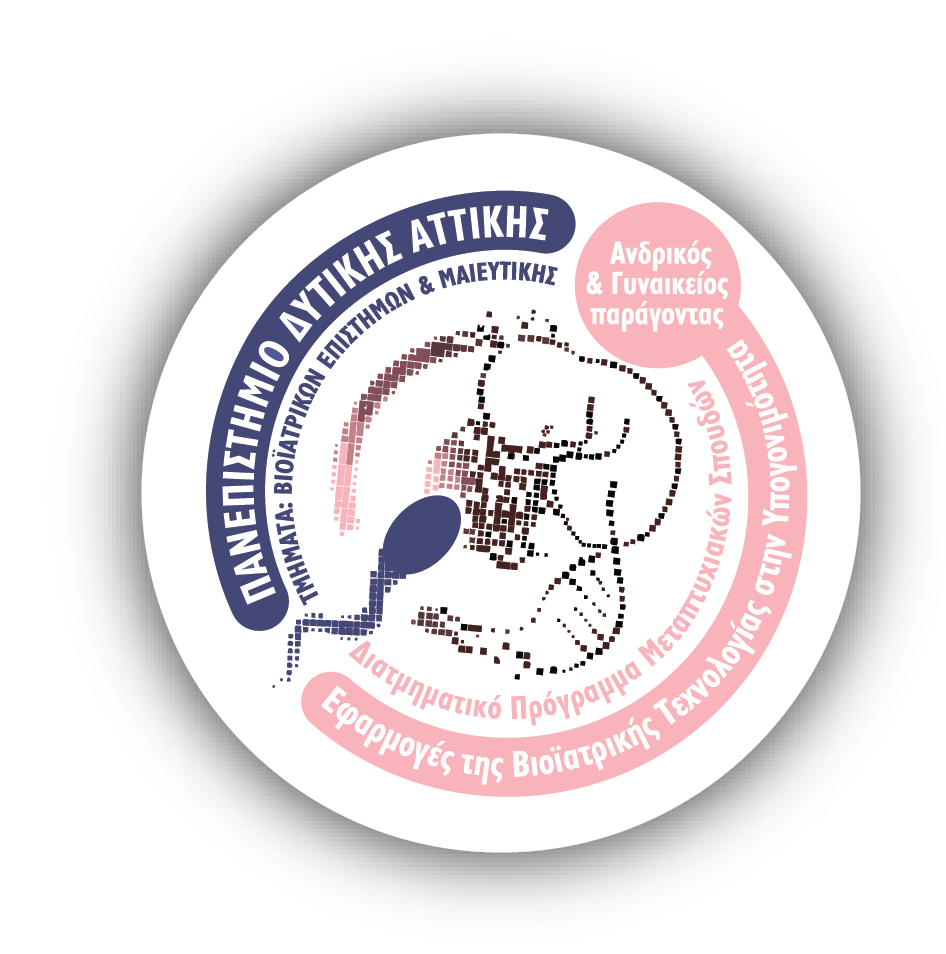The aim of the Interdepartmental Postgraduate Program, entitled “Applications of Biomedical Technology in Infertility – Male and Female Factor”, is to offer high level knowledge to graduate students and/ or health professionals in issues of male and female infertility and in the technology of modern methods of assisted reproduction, axes which are emphasized internationally for the treatment of subfertility arising from pathological factors concerning the reproductive system of both genders.
The objectives of the Postgraduate Program are:
(a) the provision of specialized knowledge to graduates of Greek National Universities or foreign (non-Greek) Higher Educational Institutes who are employed in Assisted Reproduction Centers and
(b) the theoretical and laboratory approach to male and female infertility factors with innovative, evidence-based methods and technologies.
All courses are harmonized within the framework of the most modern teaching techniques and methods, relevant to the subject. Emphasis is provided in the laboratory training of the students, which includes the deepening in methods of diagnosis of the causes of infertility of both genders.
The teaching modules of the Postgraduate Program are a scientifically balanced combination of in-depth knowledge in the investigation (sperm chart, oxidative stress control) and preservation (cryopreservation) of male fertility, in factors (smoking, alcohol, drugs, medicines, etc.) that affect the sperm quality and in treatments of male infertility (microfertilization, intracytoplasmic injection of morphologically selected spermatozoon, collection of sperm from a testicular biopsy, etc.). As for the female factor, the natural cycle of a woman, the micro-insemination process, the pre-implantation diagnosis, the egg freezing, the donor egg process and new IVF techniques are scientifically considered.
The goals of the Postgraduate Program are:
- The training and development of specialized and capable post-graduate scientists and researchers, who will promote the field of reproductive health of the population, based on their theoretical, laboratory and practical training.
- The development of analytical, strategic and creative thinking and the creation of a new generation of laboratory scientists, capable of analyzing the new challenges in the field of human male infertility, but also formulating and implementing innovative and effective laboratory protocols in an ever-changing environment of Assisted Reproductive Technology, with a focus on improving health and fertility of the population.
- The promotion of the cooperation between the Academic Community and Assisted Reproduction Centers (of Public and Private Sector) for the acceptance, use and development of the most advanced laboratory systems in the field of male infertility.
- The conduction of the research in the academic subjects of the Postgraduate Program and its support through the acquisition of technical knowledge and research and analytical skills for future academic development and preparation of Doctoral Theses, in the above scientific fields and the corresponding technologies.
- The critical evaluation and discussion of multiple dimensions of assisted reproductive technology, including the role of ethics and bioethical issues arising from human infertility.
- The provision of academic knowledge for the training of health professionals, which fulfill the needs of the population for high-level health services by ensuring the criteria of quality, efficiency and effectiveness for the benefit of the society.
- The promotion of effective collaboration with interdisciplinary and interprofessional teams.
- The highlighting and application of cultural merits and practices in the design and implementation of innovative laboratory protocols in the health sector.
- The connection of the Postgraduate Program with the real needs of the Assisted Reproduction Centers.
- The systematic and documented evaluation of the effects and results of laboratory interventions, which include social and ethic parameters, related to Assisted Reproduction Centers.

